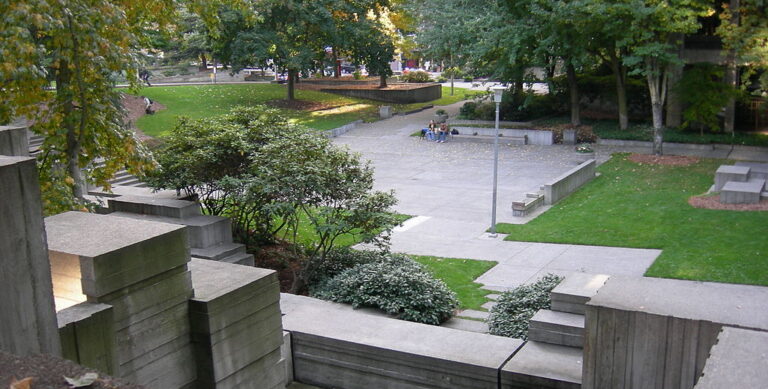Published on May 4, 2023

Concrete: it’s all around us. It makes up sidewalks, buildings, pavements, bridges, and dams, and can be shaped (within reason) to a builder’s whims. The ubiquitous material probably escapes everyday notice simply because it is everywhere. So, is concrete really a big deal?
“I have a presentation that starts out asking that question,” says Fred Aguayo, an assistant professor with the Department of Construction Management. “People see concrete science and engineering and think it’s not really a major thing: You mix rocks, sand, and water, and you have a hardened product at the end of the day. But, that’s not the whole story.”
Concrete recipes and ingredients can change how the material performs, the subject of Aguayo’s research. His research has major implications for carbon sequestration, climate change, and the construction industry. It also means that concrete has a secret life you’d never guess at by just glancing at a building or walking a city sidewalk.
Continue reading at CBE.
Originally written by Jen DeMoss for CBE.